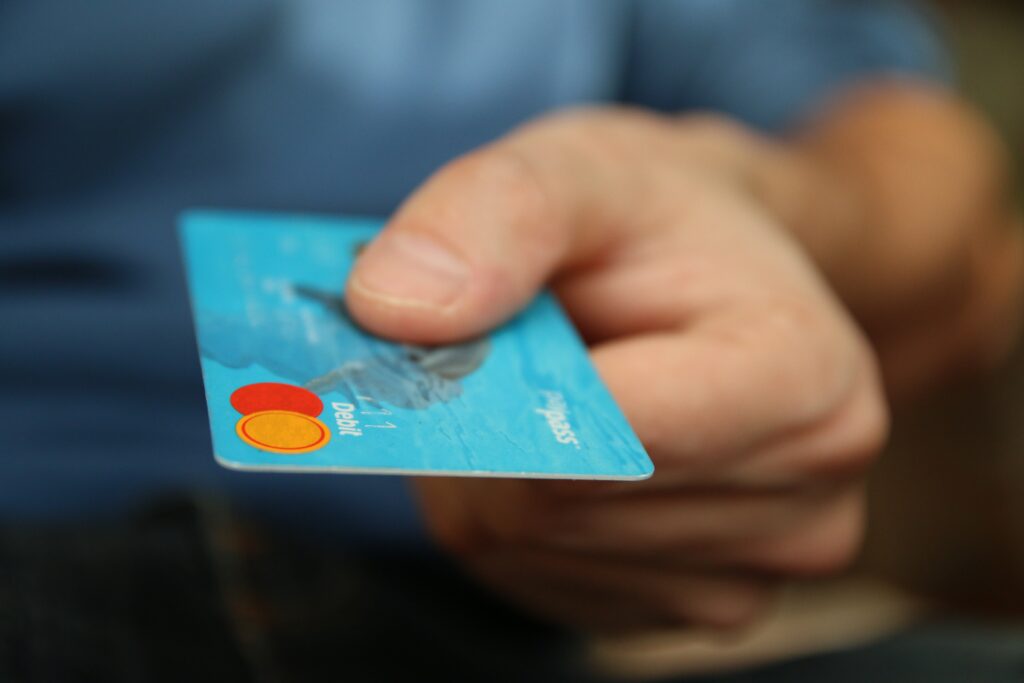5.11.22
Bad Credit Habits and How to Break Them

Create more financial stability by changing the ways you use and view credit.
Are bad spending habits hurting your credit score and budget? Changing the way you view and use credit cards can improve your credit score and give you more financial stability. Keep reading for common bad credit habits and how to break them.
Late payments
Making late credit card payments hurts in more than one way. First, there are late fees which average $35 every time you miss a payment. Second, there’s the long-term effect on your credit score because the late payments can stay on your record for up to seven years. Third, many creditors increase your interest rate if you fail to make minimum payments on time. Ouch! Ouch! Ouch!
To break a habit of late payments, consider setting up a reminder system. For example, you can use alerts on your smartphone or record due dates on a paper calendar. You could also decide to make payments as soon as you receive your credit card statement online or in the mail.
Spending up to your limit
Part of your credit score is calculated based on how much credit you utilize. For example if you have a $10,000 credit limit and a $7,000 balance, you’re utilizing 70% of your credit. People with higher credit utilization rates generally have lower credit scores.
Financial experts typically recommend keeping your credit utilization rate at 30% or less. Stop spending up to your limit by tracking purchases, paying cash and avoiding impulse spending.
Not reviewing credit card statements
Making credit card payments without reviewing the charges could leave you paying more than you should. A line-by-line review of your credit card statement each month will help you spot any unauthorized charges, errors and identify spending habits.
View credit health the way doctors evaluate physical health. Just like periodic review of weight and blood pressure are good indicators of your body’s health, reviewing your spending each month can help you keep track of your financial health.
Paying only the minimum due
Paying the minimum due will always cost you more in the long run. To see how much, look at your credit card statement for a table that shows exactly how long it will take to pay off the balance if only the minimum payment is made.
To break the bad habit of paying only the minimum due, ask yourself if the things you purchased are worth long term debt. For example, do you really want to spend three years paying off that night on the town or those cool new shoes?
Using balance transfers to avoid payments
Moving debt to a new credit card with low or even 0% interest for an introductory period can make good sense if you have a solid debt-reduction plan. However, if balance transfers are used as way of avoiding payments, this move simply perpetuates debt. Additionally, you may rack up transfer fees that increase your debt burden even more.
The way to break the bad habit of using balance transfers to avoid payments is take control of your finances. If you don’t know to create a debt-reduction or debt-elimination plan, help is available. As a Consumer member you have free, unlimited access to credit counseling and repair. Yes, it can be difficult to ask for help but short-term discomfort can lead to long-term financial stability.
Choosing cards that cost you money
Credit cards that charge an annual fee unnecessarily cost you money every year. And if your card doesn’t offer rewards, you’re losing out on a valuable benefit. With the Consumers Cash Back Mastercard® there’s no annual fee and you earn 1.50%* cash back on all purchases. Learn more about the credit card that helps protect your budget.
*Earn 1.50% Cash Back for every one dollar spent on purchases less credits, returns, and adjustments during a statement period. Cash advances, balances transfers, fees and finance charges do not earn Cash Back. Cash Back earned during your billing cycle will be disclosed on your credit card statement. Cash Back is available for redemption in Online Banking as transactions post. Members must redeem Cash Back in $1.00 increments. Cash Back redemptions to a deposit account or for statement credit will not satisfy the minimum payment due. This product is limited to personal credit cards. Approval subject to credit review. For more details, please refer to your Truth in Lending Statement or Cardholder Agreement accompanying your card.




I would like help with my credit card debt! I’m sinking! Circumstances and not knowing how credit cards work has really taken a toll! I’ll cut them up! Please help!
Hi Elizabeth, please give us a call at 800.991.2221!